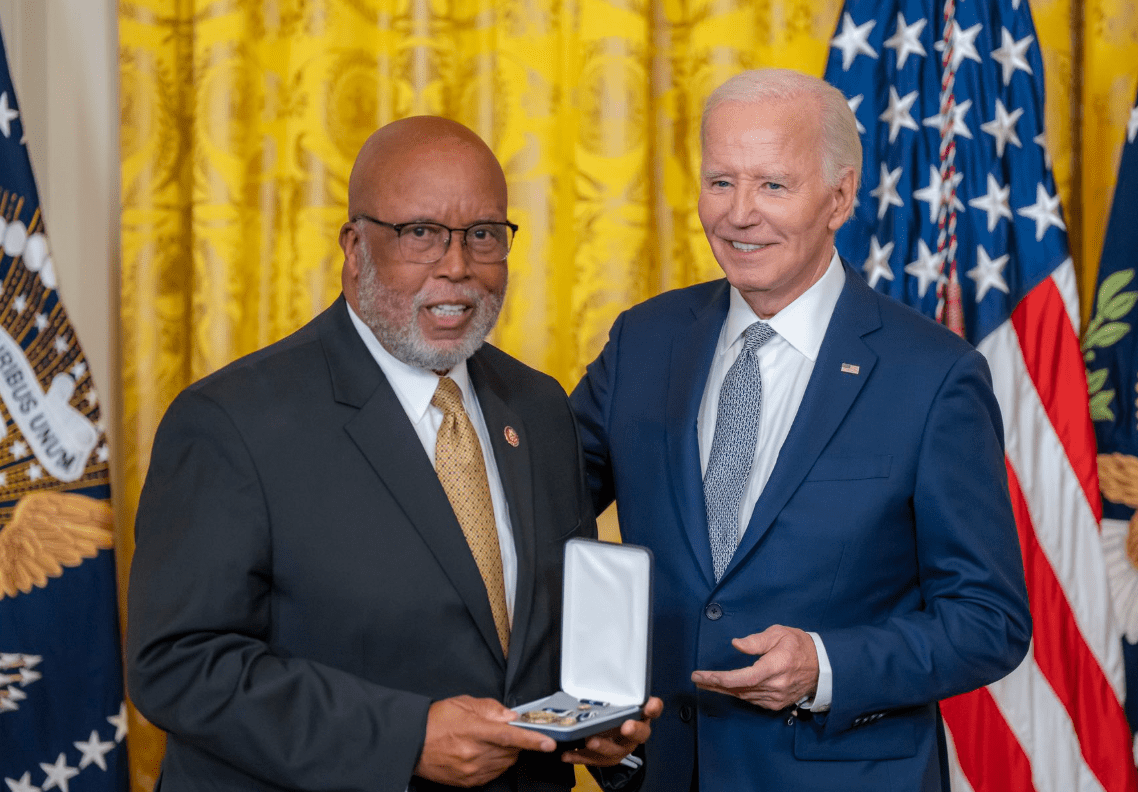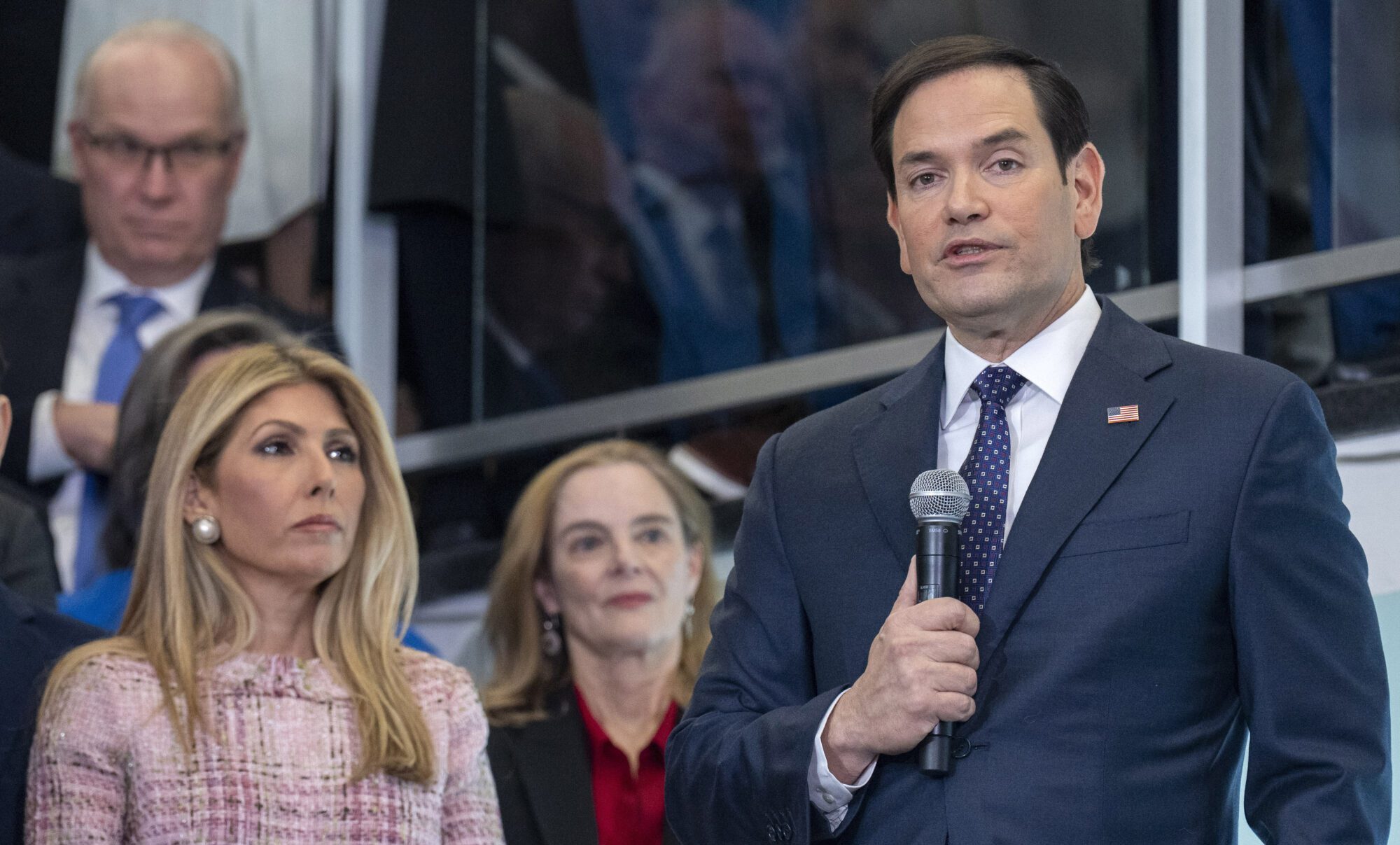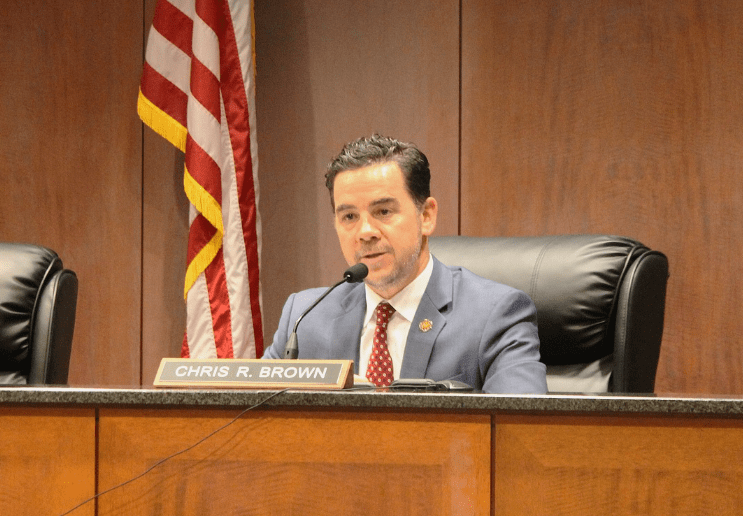This criminal appeal was argued on April 1, 2009. On April 22, the Court
requested supplemental briefing on five questions relating to defendants’ convictions
under 18 U.S.C. § 666. These questions focus on whether the defendants gave and/or
received bribes “in connection with any business, transaction, or series of transactions
of” the Administrative Office of the Mississippi Courts (“AOC”). 18 U.S.C. §§
666(a)(1)(B), 666(a)(2). As we discuss below, defendants waived any issues
regarding the “in connection with” clause on appeal. Moreover, the evidence was
more than sufficient to satisfy this statutory element as the defendants gave and
received bribes “in connection with” civil court cases, which constitute “business” of
the AOC. Should the Court disagree, overturning all convictions related to Section
666 will not affect the defendants’ prison sentences but will require a reduction in the
amount of Minor’s fine, and revision of the judgments for Whitfield and Teel.
I. DEFENDANTS HAVE WAIVED ANY CLAIM THAT THEIR BRIBERY
WAS NOT “IN CONNECTION WITH ANY BUSINESS, TRANSACTION,
OR SERIES OF TRANSACTIONS” OF THE AOC. (QUESTION 4)
Before addressing the Court’s other questions, we note that defendants have not
challenged the sufficiency of the evidence relating to the statutory requirement that
their bribes be given or received “in connection with any business, transaction, or
series of transactions” of the AOC. In the district court, Minor argued for a judgment
of acquittal under Fed. R. Crim. P. 29 on the ground that his bribes did not “involve
transactions of the agency receiving the federal funds.” Tr. 4073, see id. at 4060;
D570. This argument preserved that particular claim for all defendants. Id. at 4086
(Whitfield adopts Minor’s Rule 29 arguments), and 4096 (same as to Teel). See also
D486 at 10-15. But no defendant renewed the argument on appeal. Instead, Minor
and Whitfield briefed other arguments relating to the Section 666 charges, while Teel
raised no challenge to his Section 666 conviction. Only one of the 1 arguments raised
on appeal (that Whitfield and Teel were not “agents” of the AOC) challenged the
sufficiency of the evidence — and on an entirely different statutory element. Compare
Section 666(a)(1) (“Whoever * * * being an agent of an organization, or of a State,
local or Indian tribal government, or any agency thereof * * *.”) (emphasis added),
with Section 666(a)(1)(B) (defendant must corruptly solicit, demand, accept or agree
to accept [a bribe] “in connection with any business, transaction, or series of
transactions of such organization, government, or agency * * *.”) (emphasis added).
Whitfield may claim that he preserved any issues relating to the “in connection
with” clause by quoting and highlighting the relevant statutory language at the
beginning of his Section 666 argument. See Whitfield Br. 17-18; see also Minor Br.
80 (discussing Section 666(a)(2)’s elements). Simply quoting the statute does not,
1 Minor and Whitfield argue that (1) the indictment failed to provide
sufficient notice of the Section 666 charges, Whitfield Br. 17-20, 25-30; (2) the evidence
was insufficient to show that Whitfield and Teel were “agents” of the AOC, Minor Br.
81-84, Whitfield Br. 21-38; and (3) the jury instructions should have required proof that
Whitfield and Teel controlled the use or spending of federal funds, Minor Br. 84-86.
however, preserve a sufficiency-of-the-evidence claim and nowhere in the ensuing 20-
pages does Whitfield contend (or even suggest) that the government failed to prove
this statutory element. Indeed, the remainder of Whitfield’s Section 666 discussion
fails even to mention the “in connection with” clause. Accordingly, 2 Whitfield failed
to preserve this claim. See Fed. R. App. P. 28(a)(9)(A) (appellant’s brief must contain
“[his] contentions and the reasons for them, with citations to the authorities and part
of the record on which the appellant relies”); see also United States v. Beaumont, 972
F.2d 553, 563 (5th Cir. 1992) (assertion that evidence was insufficient, unaccompanied
by argument, “renders those issues abandoned”); United States v. Skilling, 554 F.3d
529, 568 n.63 (5th Cir. 2009) (absence of “basic elements of an appellate argument
constitutes waiver in typical cases”).3
In its April 22 letter, the Court asks “what authority would allow [it] to
consider” an argument not adequately raised below and on appeal. “Failure
adequately to brief an issue on appeal constitutes waiver of that argument.” Proctor
2 Although an appellant cannot raise an issue for the first time in his reply
brief, United States v. Avants, 367 F.3d 433, 449 (5th Cir. 2004), we also note that neither
Whitfield nor Minor mentioned the “in connection with” clause in their reply briefs. Nor
did they contend that, by failing to address this issue in its brief, the government ignored
one of their claims.
3 Whitfield may claim that as a pro se appellant, his briefs must be read
liberally. We question whether this principle applies to a former judge and attorney who
heard and handled criminal cases. In any event, no amount of liberal construction can
endow a brief with an argument that is not there.
& Gamble Co. v. Amway Corp., 376 F.3d 496, 499 n.1 (5 Cir. 2004). th “An appellate
court will not consider sua sponte an argument not raised in the court below or urged
by the litigants [on appeal] except to prevent a miscarriage of justice.” United States
v. Montemayor, 703 F.2d 109, 114 n.7 (5th Cir. 1983); accord In re Goff, 812 F.2d
931, 933 (5th Cir. 1987).
Sua sponte intervention by the Court is not appropriate here. These wellrepresented
defendants had every opportunity to raise a sufficiency-of-the-evidence
challenge regarding Section 666’s “in connection with” clause. Indeed, they were
permitted to file appellate briefs totaling 328 pages in which they addressed dozens
of other claims. See Skilling, 554 F.3d at 568 n.63 (“waiver applies all the more
where, as here, a party is given leave to file approximately 550 pages of briefing.”).
Moreover, as we discuss infra, even had defendants merely forfeited, rather than
waived, this claim, they would not prevail. Accordingly, no manifest injustice would
arise from failing to consider the issue sua sponte.
II. EVEN IF A SUFFICIENCY-OF-THE-EVIDENCE CLAIM RELATING TO
THE “IN CONNECTION WITH” CLAUSE WERE REVIEWABLE, THE
RECORD WAS NOT DEVOID OF EVIDENCE ON THIS ELEMENT OF
THE SECTION 666 OFFENSES.
A. The Standard Of Review.
If the Court decides sua sponte to reach the waived issues, the standard of
review cannot be any more favorable than it would have been if these issues had
merely been forfeited. Under this Circuit’s established law, a sufficiency-of-theevidence
claim not raised below is reviewed “under a stricter than usual standard.”
United States v. Sam, 467 F.3d 857, 860 (5 Cir. 2006) (th quotation omitted).
“[R]eview is [only] for ‘a manifest miscarriage of justice,’ which is found if the record
is ‘devoid of evidence pointing to guilt,’” or if “the evidence on a key element of the
offense was so tenuous that a conviction would be shocking[.]” Ibid. (internal
citations omitted). The government’s evidence easily passes this standard.4
B. Civil Cases Pending In Mississippi Circuit And Chancery Courts
Constitute Part of the AOC’s “Business”. (Question 1)
The government’s theory below was that the defendants either offered or
accepted bribes in connection with “cases of interest to MINOR” in the Mississippi
Circuit and Chancery courts. MRE/3 at 28-31. The Court’s April 22 letter questions
whether such cases constitute the “business” or “transactions” of the AOC.
At the outset we note that, by applying Sections 666(a)(1)(B) and 666(a)(2) to
bribes given or taken in connection with “any business of * * * such organization,”
Congress rejected the notion that they only covered the “core” business of a relevant
entity. Cf. Salinas v. United States, 522 U.S. 52, 57 (1997) (noting that “[t]he word
‘any,’ which prefaces the business or transaction clause” of Section 666 undercuts the
4 The same standard applies when the defendant raises a forfeited
sufficiency-of-the-evidence challenge to a “jurisdictional element” of the offense. United
States v. Reff, 479 F.3d 396, 400 (5th Cir. 2007).
“narrowing construction” defendant proposed). Instead, Congress’s use of the term
“any” signals that “business” should be interpreted broadly. Accord United States v.
Marmolejo, 89 F.3d 1185, 1191-92 (5 Cir. 1996), aff’d on other th grounds sub nom,
Salinas v. United States, 522 U.S. 52 (1997) (interpreting Section 666’s phrase
“anything of value” as “broad in scope” and applying to intangible items).
Because Section 666 does not define the term “business,” it should be accorded
its common meaning.5 Black’s Law Dictionary defines “business” as, inter alia,
“[t]hat which habitually busies or occupies or engages the time, attention, labor, and
effort of persons as a principal serious concern or interest * * * .” Black’s Law
Dictionary 179 (5th Ed. 1979); see also United States v. Bonito, 57 F.3d 167, 172 (2d
Cir. 1995) (“‘Business,’ broadly defined, includes ‘work,’ ‘professional dealings,’
‘one’s proper concern,’ and ‘serious work or endeavor that pertains to one’s job.’”).
So defined, civil cases decided in Mississippi courts are part of the AOC’s “business.”
At trial, Carolyn Briscoe, the former Finance Director of the AOC, testified that
AOC employees fall into two distinct categories. One group handles the “business
end” of the Mississippi courts from the AOC’s offices in Jackson, Mississippi, and
performs numerous administrative functions, including finances, travel and computer
5 Although the statutory language also refers to “transactions” of the relevant
entity, the term “business” is “often broader than” “transaction.” United States v. Bonito,
57 F.3d 167, 173 (2d Cir. 1995). Accordingly, we focus our analysis on the former term
even though “transaction” may also apply here.
activities. Tr. 2588, 2606. These duties are “nonjudicial” in the sense that they do not
require AOC employees to participate directly in resolving individual court cases. See
Miss. Code Ann. § 9-21-1. Nonetheless, Mississippi court cases still constitute part
of the “business” of these AOC employees because many of their specified duties and
powers involve improving the administration of justice in Mississippi, a matter that
relates directly to the cases filed in its courts.
6 But even if this Court disagrees, civil court cases filed in Mississippi are still
the “business” of the AOC because the other group of AOC employees works directly
on processing and resolving such cases. As Briscoe testified, all of Mississippi
judges’ support staff, including “court administrators, law clerks, research assistants
[and] secretaries,” are employees of the AOC. Tr. 2606-07 (AOC employees “work
out * * * in the Chancery and Circuit Courts, too” and “are everywhere”); see Miss.
Code Ann. §§ 9-1-36(3), 9-1-36(6)(b). Because these AOC employees devote their
See, e.g., Miss. Code Ann. § 9-21-1 (AOC charged 6 with “improving the
administration of justice in Mississippi” by performing specified duties and exercising
specified powers); id. at § 9-21-3(2)(a) (AOC to compile and publish statistics on “the
administration of justice” in Mississippi); id. at § 9-21-3(2)(b) (AOC to conduct studies
and projects to “improve the administration of justice by the courts of [Mississippi]”); id.
at § 9-21-3(2)(e) (AOC to perform “other duties relating to the improvement of the
administration of justice” as assigned by the Mississippi Supreme Court); id. at § 9-21-
9(a) (AOC Director may require courts to file reports on “the judicial * * * operation of
the courts”); id. at § 9-21-9(b) (AOC Director to “evaluate the practices and procedures of
the courts”); id. at § 9-21-9(k) (AOC Director to “make recommendations for the
improvement of the operations of the judicial system”); id. at § 9-21-9(l) (AOC Director
to prepare an annual report on “the work of the judicial system”).
“time, attention, labor, and effort” to processing cases in Mississippi courts, such
cases are necessarily part of the “business” of the AOC.
Moreover, since AOC employees “habitually” work on civil cases in
Mississippi courts, all such cases are the “business” of the AOC regardless of the
precise role AOC employees play in an individual case. Indeed, given the range of
court personnel who are AOC employees, the jury was entitled to conclude that AOC
employees are involved in every Mississippi civil case — and that an intent “to
influence” or “to be influenced” in connection with any civil case is thus an intent “to
influence” or “to be influenced” “in connection with any business” of the AOC.
In any event, the evidence demonstrated that specific AOC employees were
assigned important roles in the two cases at issue here. For example, Michael Piazza,
a senior staff attorney, had substantial involvement in the Peoples Bank case. Piazza
testified generally that, in his role as a “law clerk” for Judges Randall and Tom Teel
(brother of defendant Wes Teel), he did “everything,” including “[speaking] with [the
judges] about every case to find out how they wanted to rule,” “play[ing] devil’s
advocate,” and “advis[ing] [the judges] of the law.” Tr. 4295. Indeed, Piazza
testified that “every opinion or judgment that came out of that court, I drafted.” Id.;
see id. at 4331 (Piazza was “involved in making the decisions”). Randall confirmed
that he “rel[ied] heavily” on Piazza to “help us in making decisions.” Tr. 2670-71.
More specifically, in Peoples Bank, Piazza (1) advised Randall to transfer the
case out of Chancery Court, Tr. 2671; (2) argued with Randall when, under ex parte
pressure from Minor, Randall agreed to take the case back, Tr. 2675-76, see Gov’t
C.A. Br. 28-29; (3) resisted Randall’s request that he review several boxes of
documents to resolve privilege claims, Tr. 2677; (4) successfully recommended that
Randall assign this task to Teel, Tr. 4332-33; and (5) probably discussed the discovery
issue with Teel and drafted Teel’s opinion resolving it, Tr. 2754. In 7 short, given the
extensive involvement of an AOC employee in the case, the Peoples Bank matter was
undeniably the “business” of the AOC.
The Marks litigation likewise involved “bribery” “in connection with” the
“business” of the AOC. Becky Payne, the Harrison County Circuit Court
administrator (and also an AOC employee), testified that at the time Marks was filed,
she was responsible for randomly assigning new cases to prevent “judge shopping.”
Tr. 4519, 4529. The testimony further showed that, as part of their bribery scheme,
Minor and Whitfield conspired to ensure that Payne did not perform this important
role in the Marks case by having Whitfield sign a “fiat” that effectively pre-assigned
the case to him. Gov’t C.A. 17-18. As a result, the bribes Minor paid “influence[d]”
Whitfield “in connection with” “any business” assigned to an employee of the AOC
7 Piazza also indicated that another AOC-employed law clerk worked more
closely with Teel. Tr. 4332-33, 4292.
by preventing that employee from performing her designated function. See also Gov’t
C.A. Br. 29-30 (Minor orders Randall to reassign Peoples Bank case to Teel).
C. The Evidence Showed That The Bribes Were “Connected” To The
Business of the AOC. (Questions 2 and 3)
The plain language of Sections 666(a)(1)(B) and 666(a)(2) requires only a
minimal “nexus” between the subject of the bribe (here, civil court cases) and the
“business” of the relevant state entity. In particular, the statute requires only that the
defendant offer or accept a bribe that is “connect[ed]” to “any business, transaction, or
series of transactions” of the entity receiving federal funds. See United States v.
Salazar, 542 F.3d 139, 147 (5 Cir. 2008) (phrase “in connection th with” in criminal
statute is “broad” and “expansive”), cert. denied, 129 S. Ct. 1669 (2009); accord
RAMCOR Services Group, Inc. v. United States, 185 F.3d 1286, 1289 (Fed. Cir. 1999)
(“The operative phrase ‘in connection with’ is very sweeping in scope.”). The Court
need not explore the outer reaches of this language because, as we discuss above, the
civil cases that were the subject of defendants’ bribes were the “business” of the AOC.
Two things that are equivalent are necessarily “connected” to one another. Oxford
English Dictionary Online (2008) (A “connection” is “[t]he condition of being related
to something else by a bond of interdependence.”) (emphasis added).
Some cases from this Court have suggested that Section 666 requires “some
nexus between the criminal conduct and the agency receiving federal assistance.”
United States v. Moeller, 987 F.2d 1134, 1137 (1993); see also United States v.
Phillips, 219 F.3d 404, 413-15 (2000). But as the Court noted in United States v.
Westmoreland, 841 F.3d 572, 578 (1988), the statute extends to “entities that receive
a substantial amount of federal funds and to agents who have the authority to effect
significant transactions.” As long as these requirements are met, the statute applies.
See Sabri v. United States, 541 U.S. 600, 604-08 (2004) (Section 666(a)(2) not
unconstitutional on its face for failing to require “nexus” between bribes and federal
funds); Salinas, 522 U.S. at 56 (noting Section 666’s “expansive, unqualified language,
both as to the bribes forbidden and the entities covered”) .
But assuming arguendo that the government must prove some “nexus” beyond
what the “in connection with” clause itself requires, that additional element was present
here. The corruption of Mississippi judges affects the AOC in numerous ways,
including (1) defeating the AOC’s primary function of “improving the administration
of justice in Mississippi,” Miss. Code Ann. § 9-21-1; (2) raising a significant risk that
corrupt officials will also divert the AOC’s own funds or accept kickbacks in hiring
AOC employees; (3) enmeshing AOC employees in corrupt decisionmaking, 8 see supra
at 8-9; and (4) preventing AOC employees from performing their proper functions, see
8 As we noted in our Opening Brief at 85-90, Mississippi judges are “agents”
of the AOC who control significant amounts of AOC funds. Judges that accept bribes are
also likely to misappropriate these funds and, not surprisingly, Teel actually did so here.
Gov’t C.A. Br. 25.
supra at 9-10. Because such conduct affects the “integrity” of the AOC, Section 666
provides an appropriate vehicle for prosecution. See Westmoreland, 841 F.2d at 577-
78 (“It is sufficient that Congress seeks to preserve the integrity of federal funds by
assuring the integrity of the organizations or agencies that receive them.”).
III. REVERSING ALL CONVICTIONS THAT RELATE TO SECTION 666
WOULD NOT AFFECT THE DEFENDANTS’ PRISON SENTENCES BUT
WOULD REQUIRE A REDUCTION IN MINOR’S FINE AND AMENDED
JUDGMENTS AS TO WHITFIELD AND TEEL. (QUESTION 5)
Finally, the Court’s April 22 letter asks what effect reversing one or more of the
Section 666 convictions would have on the remaining counts of conviction, and
whether, in the event of reversal, resentencing would be required.
Reversing the Section 666(a)(1)(B) and 666(a)(2) convictions would not affect
the mail and wire fraud convictions (Counts 4-10) or the RICO conviction (Count 3).
None of these charges required the jury to find that the defendants offered or accepted
bribes “in connection with any business, transaction or series of transactions” of the
AOC. Moreover, the jury was informed that “each count of the indictment” charged
“a separate crime,” and was instructed that “each count and the evidence pertaining to
it should be considered separately.” MRE/8 at 4789-90.
Likewise, Count One, which charged a conspiracy between Minor and Whitfield
to violate the mail and wire fraud statutes and provisions of Section 666, would not be
affected by a ruling that the evidence was insufficient on the Section 666 counts
because the jury specifically found that the government had proved the mail and wire
fraud objects of this offense. MRE/4 at 1. Such a ruling, however, would affect the
convictions of Minor and Teel on Count Two, as the jury concluded that the object of
that conspiracy was to violate Sections 666(a)(1)(B) and 666(a)(2). Id. at 3.
No reconsideration of the defendants’ prison sentences would be required if one
or more of the Section 666 convictions (or the Count Two conspiracy conviction) were
reversed because it is clear that, even without these convictions, the district court
would have imposed the same sentence. See United States v. Ruff, 984 F.2d 635, 641
n.7 (5 Cir. 1993); United States v. Dixon, 132 F.3d 192, th 196 (5th Cir. 1997)
(resentencing unnecessary where it is clear that vacated count did not lead district court
to impose harsher sentence that it otherwise would have). Under the Guidelines, all the
counts were grouped together because the offense level for each was “determined
largely on the basis of the total amount of harm or loss.” Guidelines § 3D1.2(d); id.
at § 3D1.1; see Whitfield PSR at 23; Teel PSR at ¶ 50; Minor PSR at 26. Moreover,
Guidelines § 2C1.1 (Offering, Giving , Soliciting or Receiving a Bribe) applied to all
the offenses of conviction.9 See Guidelines § 2C1.7(c)(4) (Conspiracy and Honest
Services Guideline cross-reference); id. at § 2E1.1(a)(2) (RICO cross-reference).
Furthermore, none of the adjustments that the district court applied depended on the
9 All references to the Guidelines are to the 2001 edition used below.
nature of the underlying offense. Thus, the Guidelines range for each count was the
same. See Ruff, 984 F.2d at 641 n.7. Also, the district court’s explanations for the
sentences it imposed applied equally to all counts of conviction. See 9/7/07 Sent. Tr.
449 (jury found “[Minor] and the other two defendants essentially put justice up for
sale”); id. at 450 (“This was not a simple scheme.”); id. at 451 (describing “ripples”
defendant’s misconduct would have “upon the system of justice.”). Accordingly, there
is no possibility that the district court would have imposed different prison sentence
absent the Section 666 convictions.
With respect to Minor’s fine, however, the district court varied from the
Guidelines to impose the statutory maximum fine of $250,000 per count for a total
fine of $2,750,000. See 9/7/07 Sent. Tr. 453. Because the district court calculated the
amount of this fine based on the number of counts, the fine would have been lower had
Minor not been convicted on charges related to § 666. Accordingly, should the Court
reverse any of Minor’s convictions, his case should be remanded so that the district
court may revise the judgment as to the amount of the fine only.10
Finally, although no resentencing would be required with respect to Whitfield
and Teel should their Section 666 convictions be reversed, the district court would
10 The same analysis does not apply to Whitfield’s $125,000 fine because this
fine was within the Guidelines range, and that range would not have been affected had
there been fewer counts of conviction. See Guidelines § 5E1.2(c)(3). The district court
did not impose a fine on Teel.
need to amend their judgments to ensure that they serve the entire prison sentences
imposed. Presently, Whitfield and Teel are required to serve their entire sentences on
the Section 666 convictions (Counts 11 and 13) with the sentences on the remaining
counts to run concurrently. If these convictions were reversed, the sentences on at least
two of the remaining convictions would need to run consecutively to the extent
necessary to produce the full term of incarceration imposed by the district court. See
Guidelines § 5G1.2(d).11
CONCLUSION
All of the convictions relating to 18 U.S.C. § 666 should be affirmed.







